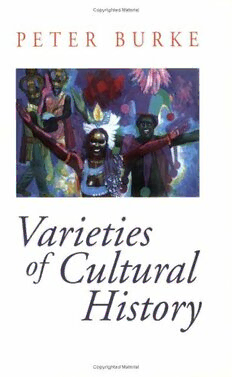
Varieties of Cultural History PDF
258 Pages·1997·3.051 MB·English
Most books are stored in the elastic cloud where traffic is expensive. For this reason, we have a limit on daily download.
Preview Varieties of Cultural History
Description:
In this collection of essays, of which four are published here for the first time, Peter Burke explores the theory and practice of what is called "new cultural history." He focuses on the varieties of cultural history which have emerged since the writings of Jacob Burckhardt and Johan Huizinga. No new orthodoxy has emerged to replace the classic model, Burke suggests, despite the importance of innovative approaches inspired by social and cultural anthropology. After discussing the origins and identity of cultural history, Burke explores the social history of dreams and the relation between history and social memory. He presents five case studies addressing topics in the history of early modern Italy. Each is located on the frontiers of cultural history--between learned and popular culture, between the public and the private spheres, and between the serious and the comic. Burke then turns to the encounter between Europe and the New World and to the phenomenon of cultural translation in the etymological, literal, and metaphorical senses of the term. He concludes with two theoretical investigations: one on the history of mentalities and one which asks why cultural history seems doomed to fragmentation.
See more
The list of books you might like
Most books are stored in the elastic cloud where traffic is expensive. For this reason, we have a limit on daily download.
